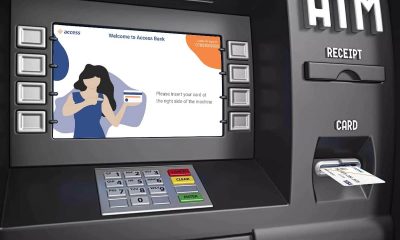Business
Economists Give Strong Advice To CBN, Nigerians On New Naira Notes
Uche Anunne

Some economists have urged the Central Bank of Nigeria (CBN) to print and circulate more new naira notes before the December 31 deadline for withdrawal of the old notes. They spoke to the News Agency of Nigeria Wednesday in different parts of the country.
NAN recalls that following a legal action instituted by some governors, the Supreme Court on March 3, ordered that the old naira and new naira notes should be in circulation side-by-side until Dec. 31.
Some Nigerians who spoke to NAN expressed concerns that the new naira notes had remained scarce while the old notes dominate cash disbursement at banks and by POS operators.
They say if the situation was not addressed as early as possible Nigerians might suffer same hardship they went through earlier in the year.
Mr Noma Iguisi, Edo Chairman, Nigerian Association of Small Scale Industrialists urged the apex make to print more of the redesigned naira notes.
“The new naira notes are not available at the banks, Automated Teller Machines and Point of Sales (POS) outlets. The old N200, N500 and N1000 notes are the notes in circulation“, he said.
Mr Atlas Ameh, an economist and lecturer at Nasarawa State Polytechnic, Lafia, commended the Federal Government for introducing the policy that led to the introduction of the new naira notes. He said the policy would minimise the risk of carrying large amounts of cash and also help in tackling inflation.
He, however, urged the CBN to ensure that the populace, particularly, those in the rural areas were properly enlightened about the policy ahead of the Dec. 31 deadline.
Also speaking, Francis Adi, another economist and lecturer at Isa Mustapha Agwai Polytechnic (IMAPOLY), Lafia, said CBN and other partners in the cashless policy should ensure that the infrastructure needed for its effective implementation were available to enable effective circulation of the new naira notes.
“Our economy is divided into formal and informal sector, over 80 per cent of the economy is with the informal sector.
“So government should ensure all infrastructure that will make the policy effective are available at the rural areas”, he advised.
Send Us A Press Statement Advertise With Us Contact Us
And For More Nigerian News Visit GWG.NG











